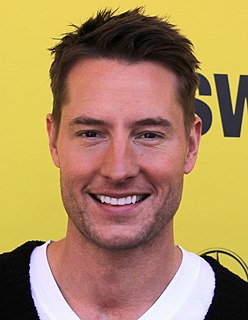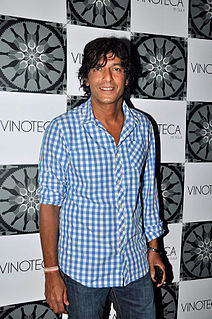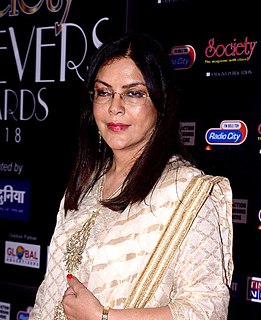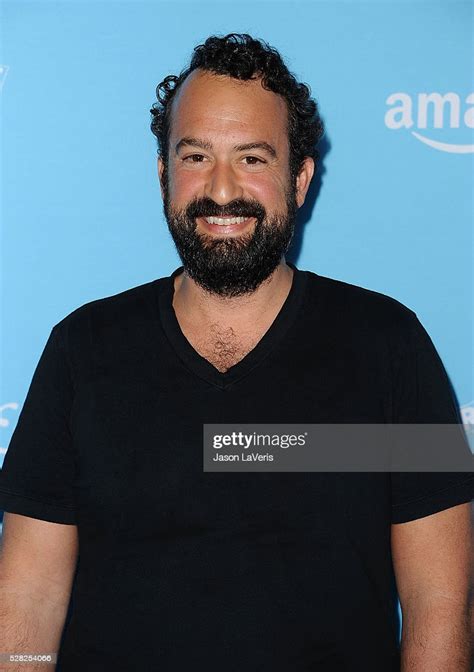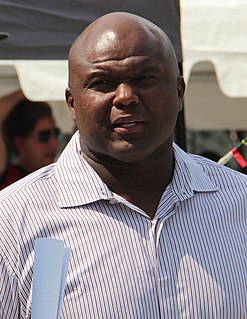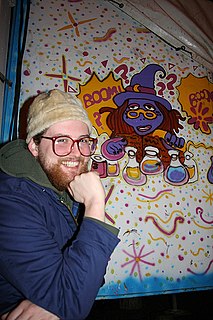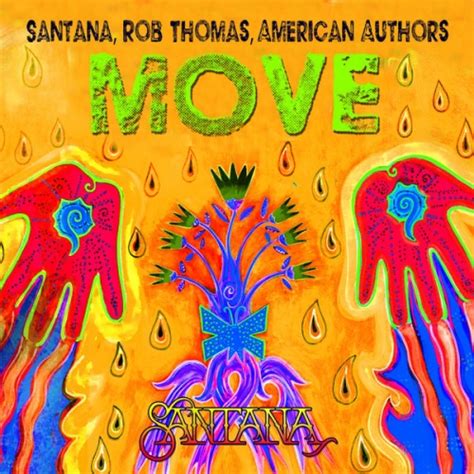A Quote by Justin Hartley
I think any time you have a show that, after you watch it, it sort of sits with you for a while, and you take pause and you talk about it, yeah, it affects your life.
Related Quotes
I think it's because if I have the time I take the time to sign every autograph I can after a show. I'll go out of my way when a lot of other guys wouldn't do this. Things like that create so much longevity in your career because that guy or girl you met that night will go home and talk about how cool Jeff Hardy was that night and then that makes their friends want to come out to the show next time you're in town.
I really became aware of the fact that, oh yeah, whereas a lot of other shows are sort of cynical or jaded or just sort of coming from that sort of energy, our show is very, very about these love-based relationships. It really comes out, a lot of times, in a sweet way. And I think people find that refreshing about our show. That's one of the things I definitely picked up on.
Learning to pause is the first step in the practice of Radical Acceptance. A pause is a suspension of activity, a time of temporary disengagement when we are no longer moving toward any goal ... The pause can occur in the midst of almost any activity and can last for an instant, for hours or for seasons of our life ... You might try it now: Stop reading and sit there, doing 'no thing,' and simply notice what you are experiencing.
I often envy a filmmaker or a playwright or an author where people are like, "Yeah, I sat down every night and read your book and it was beautiful." Or, "Yeah, I went to the movies and all I did was watch the movie because that's all you could do at the movies." Where with music, it's like, "Ugh, I love your music. I listen to it while I'm jogging thinking about how I hate my body." But it is also the privilege of being a musician is you can have your music in this documented form and play it live and that's, I think, what draws me to it the most.
And after your death, when most of you for the first time realize what life here is all about, you will begin to see that your life here is almost nothing but the sum total of every choice you have made during every moment of your life. Your thoughts, which you are responsible for, are as real as your deeds. You will begin to realize that every word and every deed affects your life and has also touched thousands of lives.
After all, the world is not a stage-not to me: nor a theatre: nor a show-house of any sort. And art, especially novels, are not little theatres where the reader sits aloft and watches...and sighs, commiserates, condones and smiles. That's what you want a book to be: because it leaves you so safe and superior, with your two-dollar ticket to the show. And that's what my books are not and never will be...Whoever reads me will be in the thick of the scrimmage, and if he doesn't like it if he wants a safe seat in the audience-let him read someone else.
I think that when you're in your twenties you think about your future, when you're in your thirties you're raising kids and you think about their future, but when you get to a time when you are diagnosed with any kind of life altering illness, what did you take away from it? And what I took away from it was how to live in the "now".
When you talk about your troubles, your ailments, your diseases, your hurts, you give longer life to what makes you unhappy. Talking about your grievances merely adds to those grievances. Give recognition only to what you desire. Think and talk only about the good things that add to your enjoyment of your work and life. If you don't talk about your grievances, you'll be delighted to find them disappearing quickly.
My humour comes from acknowledging different communities. That's what my fans are responding to - they know that I 'get it.' I understand them. I take the time to understand them. I get more complaints from people when I don't talk about them. I've had guys come up to me after a show and go, 'You didn't talk about Latvians!'
